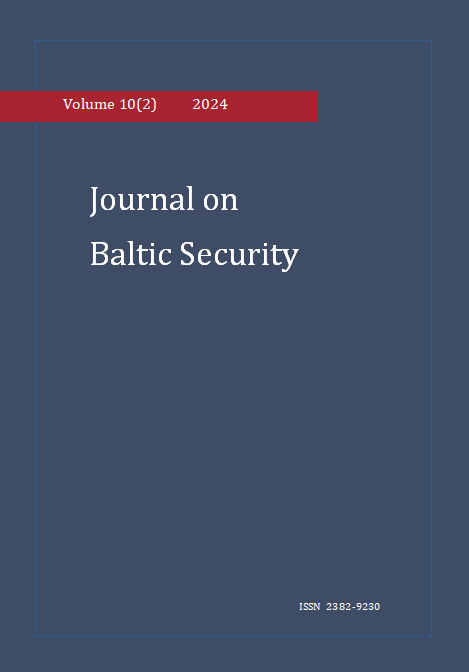Volume 10, Issue 2 (2024), December 2024

Order by:
Undersea Hybrid Threats in Strategic Competition: The Emerging Domain of NATO–EU Defense Cooperation
Pub. online: 21 Nov 2024
Type: Research Article
 Open Access
Open Access
Abstract
Pub. online: 30 Dec 2024
Type: Research Article
 Open Access
Open Access
Abstract
Pub. online: 31 Dec 2024
Type: Research Article
 Open Access
Open Access
Abstract
Pub. online: 31 Dec 2024
Type: Research Article
 Open Access
Open Access
Abstract